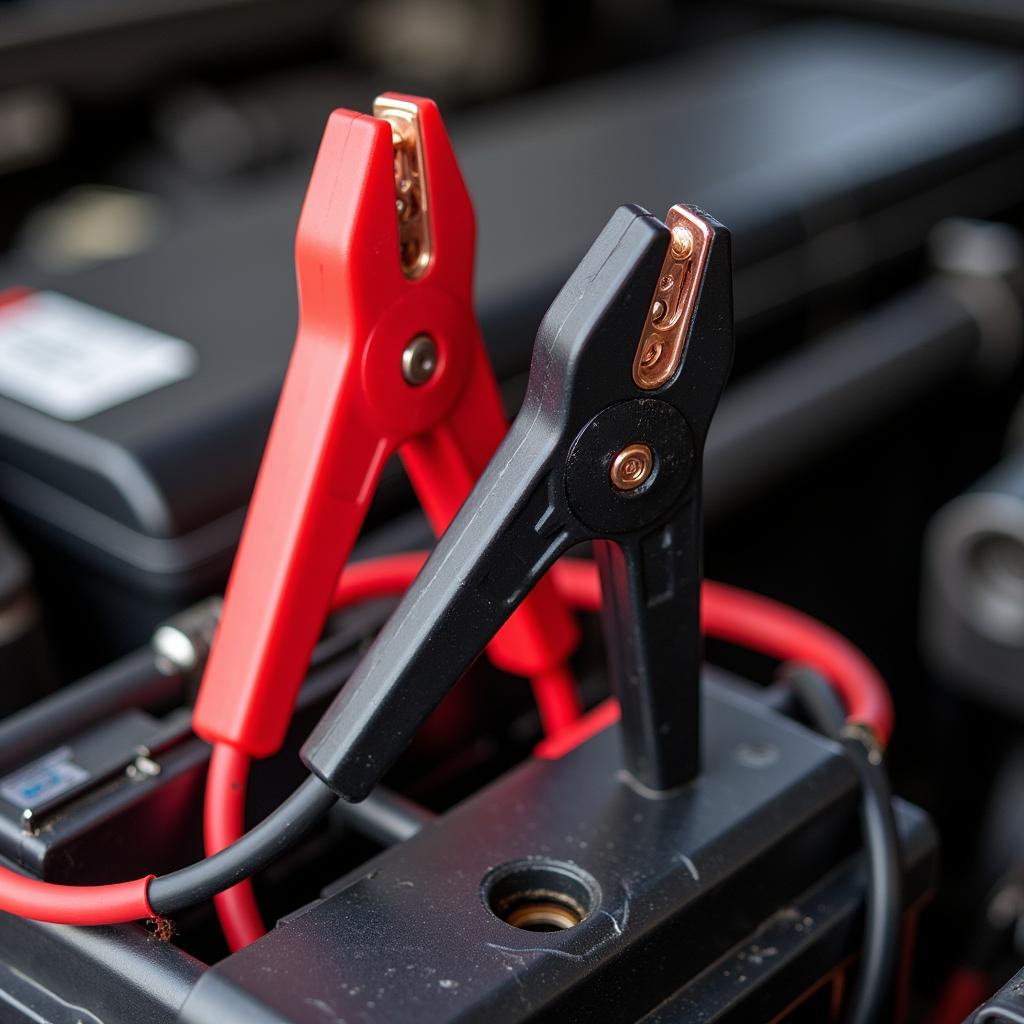Waking up to a dead car battery is frustrating, especially if it happened seemingly overnight. “Car battery just died overnight” scenarios are surprisingly common and can stem from various issues, from parasitic drains to faulty alternators and even extreme temperatures. Let’s explore the reasons why your car battery might have died overnight and how to get back on the road.
 Car Battery Dead Overnight – Jump Starting a Dead Battery
Car Battery Dead Overnight – Jump Starting a Dead Battery
Why Did My Car Battery Die Overnight?
Several culprits could be responsible for your car battery suddenly dying. A common issue is a parasitic drain, where a component continues to draw power even when the car is off. This could be anything from a faulty interior light to a more complex electrical problem. Another possibility is a failing alternator. While the alternator charges the battery while the engine is running, a malfunctioning one can prevent proper charging, leading to a dead battery. Extreme temperatures, both hot and cold, can also significantly impact battery performance and lifespan. If your car battery isn’t charging properly, you’ll likely face this problem sooner or later. For more information about battery drainage, check out this helpful resource: something is draining my battery.
Common Causes of a Dead Car Battery
- Parasitic Drain: A small, constant drain of power when the car is off, caused by a malfunctioning component.
- Faulty Alternator: The alternator fails to charge the battery adequately while driving.
- Extreme Temperatures: Extreme heat or cold can weaken the battery’s ability to hold a charge.
- Old Age: Batteries have a limited lifespan, typically 3-5 years.
- Corroded Terminals: Corrosion on the battery terminals can impede the flow of electricity.
- Short Trips: Repeated short trips don’t give the alternator enough time to fully recharge the battery.
Troubleshooting a Dead Car Battery
First, try jump-starting your car. If it starts, the issue likely lies with the charging system or a parasitic drain. If the car won’t start even with a jump, the battery itself might be the problem. You may find this article helpful if your battery drains while driving: battery drain while driving.
How to Test Your Car’s Charging System
- Start the engine: After a successful jump-start, let the engine run for a few minutes.
- Disconnect the positive jumper cable: Observe if the engine continues to run.
- Engine stalls: If the engine stalls, the alternator isn’t charging the battery.
- Engine runs: If the engine continues running, the alternator is likely functioning, and you might have a parasitic drain.
“A simple voltage test across the battery terminals can tell you a lot. A fully charged battery should read around 12.6 volts. Lower readings indicate a problem with the battery or the charging system,” says automotive electrical expert, John Miller, ASE Certified Master Technician.
Solutions and Prevention
If your battery is old, replacement is the best option. For charging system issues, consult a qualified mechanic. To prevent future overnight battery drain, make sure all accessories are off when you park your car, and address any known electrical issues promptly. Consider having your battery tested regularly, especially as it ages. Having trouble restoring your dead battery? Read more about it here: restoring a dead car battery.
“Regular maintenance is key to a healthy car battery. Just like any other component, it needs attention to perform optimally. A simple check-up can save you a lot of hassle down the road,” advises Maria Sanchez, Lead Automotive Electrical Engineer. If you find that your battery is dead after a week of not driving, you might want to explore this further: car battery dead after not driving for a week.
Conclusion
Experiencing a “car battery just died overnight” situation is a common problem with several possible causes. By understanding the reasons behind this and following the troubleshooting steps outlined, you can effectively address the issue and prevent future occurrences. Regular maintenance and addressing electrical problems promptly are crucial for maintaining a healthy car battery and avoiding unexpected breakdowns. If your car battery isn’t charging correctly, address the problem quickly: car battery isn t charging.


